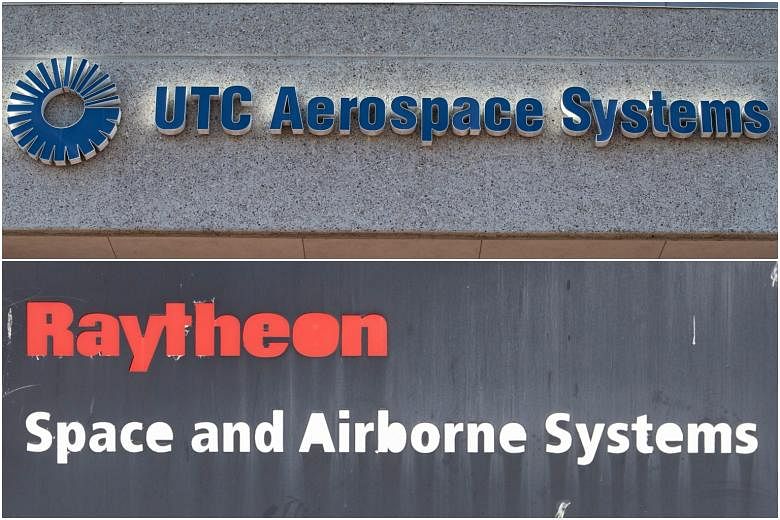WASHINGTON • United Technologies Corp and US arms giant Raytheon are in talks over a merger deal that could create one of the world's biggest aerospace and defence companies, the Wall Street Journal reported on Saturday.
According to the Journal, the two companies - which together have a market value of roughly US$166 billion (S$226 billion) - could announce an all-stock deal in the next few days.
The new entity would be the world's second-largest defence company by sales after Boeing.
United Technologies provides primarily commercial plane makers with equipment, such as electronics and communications equipment, whereas Raytheon is a vendor mainly to the US government for equipment in military aircraft and missiles.
The deal would be structured as an all-stock merger of equals because United Technologies would separately spin off its Carrier air conditioning business and Otis lift division, as it has previously announced it would do, a source said.
United Technologies has a market capitalisation of US$114 billion, but without Carrier and Otis, its value could be less than US$60 billion, bringing it closer to Raytheon's US$52 billion.
United Technologies chief executive Greg Hayes is expected to lead the newly created company, while Raytheon chief executive Thomas Kennedy would be chairman.
Raytheon, maker of the Tomahawk and the Patriot missile systems, and other US military contractors are expected to benefit from strong global demand for fighter jets and munitions as well as higher US defence spending in fiscal 2020, a lot of it driven by US President Donald Trump's administration.
However, Pentagon spending is projected to slow down after an initial boost under Mr Trump.
A deal with United Technologies would allow Raytheon to expand into commercial aviation, which does not rely on government spending like the defence sector.
Conversely, United Technologies could benefit from reducing its exposure to commercial aerospace clients amid concerns over the rise of protectionism in international trade.
The International Air Transport Association, which represents about 290 carriers, accounting for more than 80 per cent of global air traffic, cited these concerns earlier this month, when it said that the industry is expected to post a US$28 billion profit this year, down from a December forecast of US$35.5 billion.
The Chinese authorities scrutinised United Technologies' US$23 billion acquisition of Rockwell Collins heavily, given its footprint in that country's market.
This resulted in the deal closing last November, as opposed to the third quarter of that year, which the companies initially targeted.
Trade tensions between the US and China were blamed, at least partly by analysts, for that delay, and it is not clear whether the deteriorating relations between the world's two largest economies could also weigh on the Raytheon deal.
United Technologies and Raytheon appear to have little overlap in their businesses, an argument the companies could make once US antitrust regulators start scrutinising their merger.
United Technologies was previously a bigger player in the defence sector. But in 2015, it agreed to sell Sikorsky, the maker of military helicopter Black Hawk, to Lockheed Martin for US$9 billion.
REUTERS, AGENCE FRANCE-PRESSE

